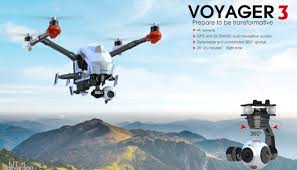
Last week, i was invited by
technoserve, an NGO looking at business solutions to end poverty, to join a meeting bringing together GIS (Geographical Information Systems) experts in Kenya from a whole range of organizations, including private sector, NGOs, government representatives, governmental organization and research both national through university of Nairobi and international (well myself and my technician).
The aim of the meeting was to support technoserve to understand better how the sector currently looks like. We discussed many bottleneck in the current systems, trying to understand how comes that so many technologies are available in location based services, and yet so little is in use. Through group discussions we found out several issues that are characterizing the Kenyan context, among which :
- policy and regulation are not in favor in new technologies (until last week for example Kenya had no legislation about commercial drones, and it was almost impossible to fly drones)
- there is a lack of awareness across all organizations and levels, mainly in the Kenyan government, which explains the lack of policies.
- There is lack of well trained staff that can take up the challenge of new technologies
- There is no lobby group for GIS and new technologies in Kenya (true, and this meeting was great to meet a lot of new people)
- There are almost no opportunities locally to keep oneself up-to-date in this fast moving world.
 |
| group work during the workshop |
What i learned from it? My work at ILRI today has nothing to do with the work i did some 3 years ago. We have moved from a data scares world into a world there data in abundance, but we do not know how to learn from it. We have moved from a static world to a very dynamic one, as new data comes in our maps have to up-date and send relevant and understandable information to decision makers. Concept of near real time, machine learning and big data are changing our jobs... it is a really exiting world... but only few of the organizations present at the meeting were aware of the on-going data revolution...
 |
| David Galaty, the project manager of innovation in outcome measurements |
The project that brought us together is called
innovation in outcome measurement, and aims at understanding why some technologies are available but its potential is not used... good question and guess what? was raised by
Gates Foundation, that funds the overall project. Beyond this meeting, the project foresees to test the use of drones in the livestock sector, a sector that is more complex than crop (which don't move) and for which drones have hardly been used up until now. What can drone change? which livestock related businesses can it enhance? what new insights can we gain? I will hopefully be part of the team that will try to answers these questions and see how to combine data from drones with other sources to gain new insights in the livestock sector.
 |
| example of drone used for aerial photography |
Once again, Gates foundation is just making it happen : giving me indirectly the opportunity to challenge the status co, push me out of my comfort zone and giving me a space for radical re-thinking. I am exited and looking forward to take this challenge up along with technoserve.


No comments:
Post a Comment